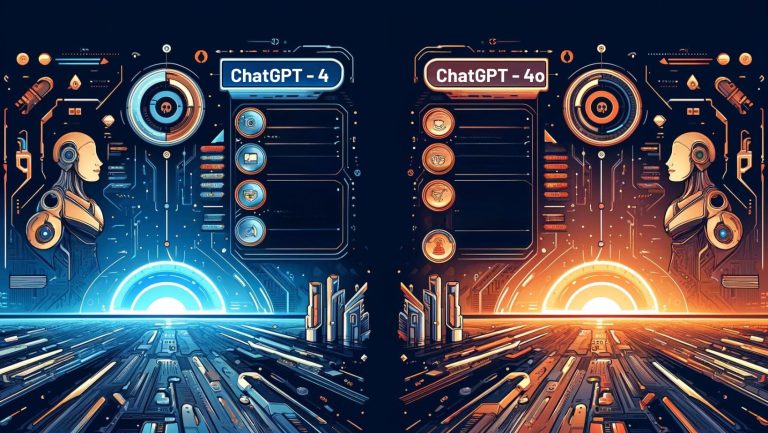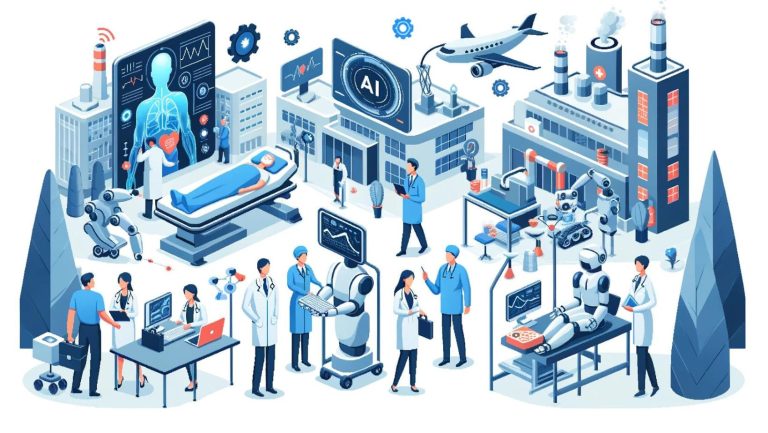What is Google Gemini? The Ultimate Breakdown of Google’s Groundbreaking AI
Google made waves in the tech world when they unveiled their own AI chatbot called Bard in February 2023. Bard was created to compete with the popular AI chatbot ChatGPT developed by Microsoft-backed OpenAI. However, shortly after Bard’s launch, Google announced an ambitious upgrade coming later this year code-named Gemini.
So what exactly is Gemini and how will it impact Google products and services? This comprehensive guide takes a closer look at everything we know so far about Google’s next big AI move. We’ll cover key topics like:
- What Makes Gemini Different from Other AI Models Like ChatGPT
- Gemini’s Multimodal Capabilities for Processing Text, Images, Audio and More
- Use Cases and Features Planned for Gemini Across Google Products
- How Gemini Stacks Up to Other Leading AI in Benchmarks and Performance
- Is Gemini the Search Engine Killer? Impacts for Google Search and Ads
- Safety Evaluations and Gradual Rollout Timeline for Gemini
By the end of this guide, you’ll have a clear understanding of this powerful new generative AI model that could transform not just Google but numerous domains from science to healthcare and more over the next decade.
What is Google Gemini? Overview and Key Details
Gemini is the code name for Google’s next-generation multimodal conversational AI capable of not just language but understanding concepts across text, images, audio, video, and more. Google CEO Sundar Pichai hailed Gemini’s announcement as “the biggest breakthrough in Google AI.”
So what makes Gemini such a monumental achievement in AI? Let’s break it down:
- Multimodal: Gemini takes AI understanding to the next level by processing multiple modes beyond just text, including images, video, audio, data visualizations, diagrams, and more according to Google executives.
- Conceptual Understanding: Gemini aims for deeper conceptual reasoning across topics to better serve up relevant, personalized recommendations and results.
- Coding & Complex Reasoning: Google suggests Gemini can match complex human skills like coding, content creation, planning, and expert-level knowledge.
- State-of-the-Art Performance: Google has touted breakthrough benchmarks from Gemini surpassing previous best AI models, though further head-to-head testing will offer more clarity.
- Efficiency at Scale: Built on Google’s TPU infrastructure allowing more efficient, scalable deployment to billions of users.
In essence, Gemini represents Google’s next generation in Large Language Models (LLMs) combining wider understanding across modes with reasoning, creativity, and planning. Google announced Gemini in briefings to the press in February 2023, stating it could be integrated across their products by the end of 2023.
How Gemini Advances on Google’s Existing AI Models like LaMDA and Bard
Google has been investing heavily in AI for over a decade, but Gemini aims to be its biggest advancement yet in generative intelligence according to Google’s AI leadership.
So how does Gemini build upon Google’s existing foundation in models like LaMDA, Bard, and other AI? A few key upgrades:
- Bard + Upgrades: Gemini can be viewed as an upgraded iteration of Bard with enhancements to understanding, reasoning, and capabilities.
- More Multimodal: While LaMDA focuses on conversational language, Gemini expands to images, video, data, and other modes.
- Greater Personalization: Gemini looks to take Google’s AI to the next level in custom, relevant recommendations for users.
- Advanced Reasoning: Gemini emphasizes more complex planning, reasoning, and creativity closing in on human capabilities.
- Responsible Development: Google stresses Gemini is thoughtfully developed under its AI Principles to minimize harm.
Gemini isn’t wholly reinventing the wheel but rather building upon Google’s existing language models and infusing state-of-the-art techniques in multimodal AI to push new boundaries in generative intelligence. The end result could transform how users search, create, plan, and extract insights using Google’s industry-leading products powered by AI.
Gemini’s Multimodal Capabilities Across Text, Images, Audio and More
One of the most exciting dimensions of Gemini is its ability to understand concepts across multiple modes like text, images, and audio. This section explores some of the use cases and possibilities multimodal AI unlocks.
Text Understanding and Generation
On the text front, Google suggests Gemini has groundbreaking natural language understanding, summarization, and generation. Potential applications could include:
- Concise summaries of longer reports, research papers, or news articles
- Thoughtful responses to text conversations and questions
- Data pattern identification in tables and visualizations
- Creative writing like poems, short stories, or essay support
Early demos indicate Gemini’s text mastery likely surpasses previous benchmarks though public testing is still limited.
Image Recognition and Generation
Expanding beyond text, Gemini can supposedly analyze and generate images thanks to advances in computer vision AI. Possible capabilities include:
- Category identification: Classifying images into detailed concepts
- Object detection: Pinpointing objects and their relationships in images
- Image description: Generating written descriptions of image contents
- Artistic rendering: Creating original digital images and artwork
Early third-party AI tests showed samples of Gemini producing novel images based on text prompts though quality remains in flux.
Audio Transcription, Summarization and Dialog
On the audio front, Google suggests Gemini can unlock new ways to search, understand, and interact with spoken words. This could enable uses like:
- Automatic speech transcription: Converting audio recordings into text
- Audio summarization: Identifying key moments and takeaways in recordings
- Voice responses: Carrying on natural dialogue with users via speech
- Voice search: Understanding and responding to spoken search queries
Audio is still an emerging frontier for AI with much room left to mature; early Voice AI integration began appearing in Google Assistant ahead of Gemini’s launch.
Connecting Concepts Across Modes
While individual modal understanding opens new doors, Gemini’s potential also lies in connecting concepts across text, images, audio. It aims to build mental models of ideas that span these modes.
This cross-modal comprehension could allow for uses like:
- Describing key ideas in images via generated text
- Matching audio recordings to relevant text summaries
- Identifying patterns across data visualizations, images, and reports
In many ways, this flexible understanding mirroring human cognition remains the holy grail for AI still being actively pioneered.
Planned Integrations for Gemini Across Google Products
Gemini isn’t just an academic exercise – Google is planning integrations across its family of widely used products within the next year. While plans may evolve, current product teams eyeing Gemini span search, cloud computing, Pixel devices, and more.
Enhancing Google Search and Ads with Gemini
As Google’s flagship product, Search stands to be the biggest beneficiary of Gemini intelligence. Specific planned integrations include:
- Relevant discovery: Gemini to connect searchers with personalized and contextual recommendations while querying.
- Trend identification: Using Gemini to identify rising trends and topics to keep Google Search current.
- Semantics-based relevance: Better comprehending searcher intent through concepts rather than just keywords for more relevant results.
Early demos also hinted at Gemini’s future applications in Google’s advertising products for uses like personalized and semantic ad targeting.
Gemini-Powered Bots and Content Creation
Many enterprises today leverage Google’s Vertex AI platform and tools behind applications like intelligent chatbots, content generators, and product recommenders. Gemini aims to significantly advance these use cases with capabilities like:
- Chatbots: More naturally conversing with customers by text, voice, and across languages powered by Gemini’s conversational intelligence.
- Data analysis: Summarizing insights from analytics dashboards, reports, and data feeds.
- Content creation: Automatically generating marketing copy, support articles, and other customizable content.
On-Device Assistance with Gemini on Pixel Phones and More
Google suggests Gemini could come directly to users’ devices starting with Pixel phones as a virtual assistant able to understand and converse via text, voice, and touch. Some early functional areas Google hinted around potentially include:
- Communicating contextually: Gemini chatting naturally while understanding related images, audio, and other details.
- Information discovery: Getting quick answers and summaries by querying text, photos, or recordings.
- Task support: Helping draft emails, and documents or suggesting calendar invites.
Over time, integrations could reach other Google hardware products like smart speakers, displays, wearables, and automotive interfaces as they aim to make technology overall more helpful, personalized, and responsive.
How Gemini’s AI Capabilities Measure Up to Other Leading Models
Google has stated Gemini marks a “dramatic leap forward” in AI capabilities based on internal benchmarks, though public head-to-head testing remains limited. Still, available indicators offer hints at how Gemini stacks up versus today’s top AI models like ChatGPT, Meta’s Blender Bot, and more in areas like reasoning prowess, efficiency, and limitations.
Reasoning Ability
In demos, Gemini exhibits strong ability in complex reasoning like logically working through multi-step math problems without losing context. And Google’s CEO Sundar Pichai boasted it even surpasses human performance in coding tasks during testing.
OpenAI’s DALL-E model has set high bars in multimodal intelligence spanning text, images, and data visualization. But so far, Gemini appears to show promising AP-like aptitude in these areas like generating reasonable images from text prompts and answering context-aware questions.
That said, all models today have easily observable limits in reasoning chains, causal understanding, and staying consistent which Gemini will continue grappling with.
Performance Benchmarks
Google has declared breakthrough results in benchmarks for Gemini, though third-party testing is pending. Specifically, execs stated Gemini achieved 2x higher scores over LaMDA in Google’s proprietary SPIN (Scale Phenomenal Intelligence) tests gauging linguistic intelligence. And over 6 months, its problem-solving score doubled while computing needs were reduced 10-fold signaling its advanced efficiency.
In areas like chat dialogue evaluations and robust QA assessments from research groups like Anthropic, Gemini will need to demonstrate its mettle. Google’s participation in these external benchmarks should shed more light.
Safety and Responsibility
Safety remains top-of-mind after recent AI debacles, prompting tech giants to address risk areas like bias, misinformation, and harm potential. Google states Gemini development has been guided by their AI Principles to minimize problematic outcomes, and they are undertaking comprehensive testing such as:
- Extensively evaluating for unfairness indicators across gender, race, and ageism.
- Stress testing conversations to avoid generating falsehoods or toxic replies.
- Embedding controls around integrity, privacy, and access permissions from the start.
Still, challenges doubtless exist in broad deployment for a system of this scale and capability. As such, Google is committed to a gradual rollout integrating thorough vetting and oversight mechanisms. Only through a comprehensive, collaborative, and responsible approach can the transformative potential of AI like Gemini be harnessed to usher the next wave of progress while prioritizing human well-being.
How Gemini Compares to ChatGPT and Claude
Google’s Gemini enters a landscape already populated by high-profile conversational AI like OpenAI’s ChatGPT and Anthropic’s Claude catching public intrigue. How might Gemini measure up and move the needle forward?
ChatGPT
As the viral AI chatbot captivates users, ChatGPT sets new expectations for language mastery. But Gemini looks to outpace it in key areas:
- Multimodal: Gemini expands understanding beyond just text to additional modes like images, tables, and audio.
- Personalization: Gemini aims for more tailored, context-aware suggestions versus ChatGPT’s general knowledge.
- Performance: Google claims breakthrough benchmark results from Gemini besting previous rivals.
However, ChatGPT still maintains edges handling sensibility, admitting knowledge gaps, and safeguarding harmful content which Gemini must prove.
Claude
As Anthropic’s Constitutional AI assistant focused on safety, Claude makes instructive comparisons with Gemini:
- Responsibility: Both embed principles guiding against potential model harms, though approaches differ.
- Transparency: Claude actively references its limitations whereas Gemini’s openness remains less clear.
- Integration: Claude explores narrow use cases while Gemini targets wide Google product inclusion from search to cloud.
In essence, Claude and Gemini take markedly different stances on elements like transparency, use case targeting, and human judgment integration that users may factor into judging trust and appropriateness.
While superior technological prowess appears in reach, earning public confidence hangs on Gemini matching capabilities with responsibility – as competitors like ChatGPT and Claude continue rapidly evolving as well.
Final Thoughts: What’s Next for Gemini and AI?
Google’s unveiling of Gemini foreshadows a seismic shift on the horizon for artificial intelligence capabilities, reach, and societal impact. By combining extraordinary advances in areas like reasoning, creation, and multimodal understanding, Gemini aims to usher in an age of vastly more intuitive, responsive, and almost human-like intelligence through products used by billions daily.
Yet realizing this future rests profoundly on employing these world-changing technologies judiciously and ethically as well. Google still faces public skepticism and scrutiny around potential risks like bias amplification, over-automation of jobs, privacy erosion, and more that accompany AI systems of such unprecedented scale.
But if carefully nurtured under a mantle of responsibility, Gemini may help bring about the next era of AI assisting humans in everything from breakthrough research to more inclusive economic opportunities without stripping away human agency or dignity. And Google pledging thoughtful rollout, extensive evaluations, and external collaboration around safety sends promising signals.
The path ahead will doubtless surface obstacles in balancing profoundly transformative AI with human well-being. But marking achievements like Gemini with open, wise dialogue and consideration around impacts suggests the dawn of AI may yet elevate humanity’s potential while averting feared pitfalls. Google now has the choice to lead wisely and by example into this gateway ushering historic progress or regression. Their decisions train the compass for where AI acceleration takes society next.

Cal Hewitt is the Founder, CEO, and Project Lead at Web Leveling, a digital marketing agency empowering small and mid-sized businesses to thrive online. With over 27 years of experience in business analysis, management, consulting, and digital marketing, Cal brings a unique perspective to every project. He specializes in website design and development, AI consulting, social media marketing, and online reputation management. Cal’s hands-on leadership style and commitment to innovation ensure that Web Leveling stays at the forefront of digital marketing trends, delivering transformative results for clients.








